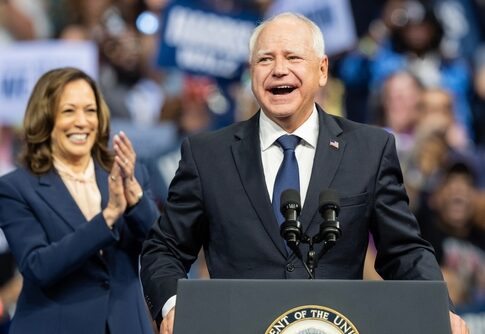In a move that has sparked significant political debate, Vice President Kamala Harris has declined former President Donald Trump's challenge for a third debate, reinforcing the already heated atmosphere of the 2024 presidential race. Harris, who had previously agreed to two debates with Trump, rejected the proposal for a third matchup, leading to further speculation about the strategies at play within both campaigns.
The first confirmed debate between Harris and Trump is set for September 10 on NBC News, followed by another in October, though the specific date and network for this second event remain unconfirmed. Trump had suggested a more aggressive debate schedule, proposing debates on September 4 on Fox News, September 10 on NBC, and September 25 on ABC. However, Harris has only committed to the NBC debate and one other in October, leaving Trump's third proposed date unaddressed.
Donald Trump is afraid to debate Kamala Harris
Baier: “He accepted three. September 4, September 10, September 17.”
“NO NO NO.” 🤣😂😂😂🤣
Meanwhile… Kamala only committed to one… https://t.co/sZesPG6dJ1 pic.twitter.com/vrD4zgRTGw
— MJTruthUltra (@MJTruthUltra) August 12, 2024
This development comes after the unexpected exit of President Joe Biden from the 2024 race, which followed a turbulent few months marked by declining approval ratings and internal party pressures. Biden's withdrawal led to Harris’s unchallenged rise as the Democratic nominee, further intensifying the election dynamics.
Trump's insistence on multiple debates is seen by some analysts as a strategic attempt to dominate the media cycle and reinforce his presence in the minds of voters, especially given Harris's relatively lower profile in national politics. Trump's campaign has aggressively pushed the narrative that Harris is avoiding a full confrontation, with Trump himself suggesting that her reluctance to engage in additional debates is a sign of weakness.
BREAKING: Kamala Harris backs out of the Fox News debate with Donald Trump, is apparently scared to debate Trump on the network.
"Comrade Kamala Harris has just informed us that she will NOT do the FoxNews Debate on September 4th," Trump announced.
"I am not surprised by this… pic.twitter.com/YdKklYXrfC
— Collin Rugg (@CollinRugg) August 20, 2024
The Harris campaign, on the other hand, has dismissed these claims, arguing that the agreed-upon debates are sufficient to present their platforms to the American public. Harris's campaign has emphasized that they are focused on ensuring substantive discussions rather than getting bogged down in what they describe as Trump’s attempts to distract from key issues.
This refusal to add a third debate has also fueled ongoing debates within the Democratic Party about Harris's strategy and readiness for the general election. With Governor Tim Walz of Minnesota, Harris's running mate, set to debate Senator JD Vance on October 1, there are concerns within the party about the effectiveness of their overall debate strategy. Walz, who has admitted to being a weaker debater, has only agreed to a single debate with Vance, despite Vance's call for more.
As the first debate approaches, both campaigns are expected to intensify their rhetoric. The decision to limit the number of debates could play a pivotal role in how each candidate is perceived by the electorate, particularly in swing states where voter sentiments remain fluid. Harris’s strategy may reflect a desire to avoid overexposure and control the narrative, while Trump’s push for more debates is likely aimed at exploiting any perceived vulnerabilities in Harris’s campaign.
The 2024 election is already shaping up to be one of the most contentious in recent history, with both sides preparing for a hard-fought campaign that will be closely watched by voters and political analysts alike. The outcome of the debates could be a critical factor in determining who will lead the nation after November.


